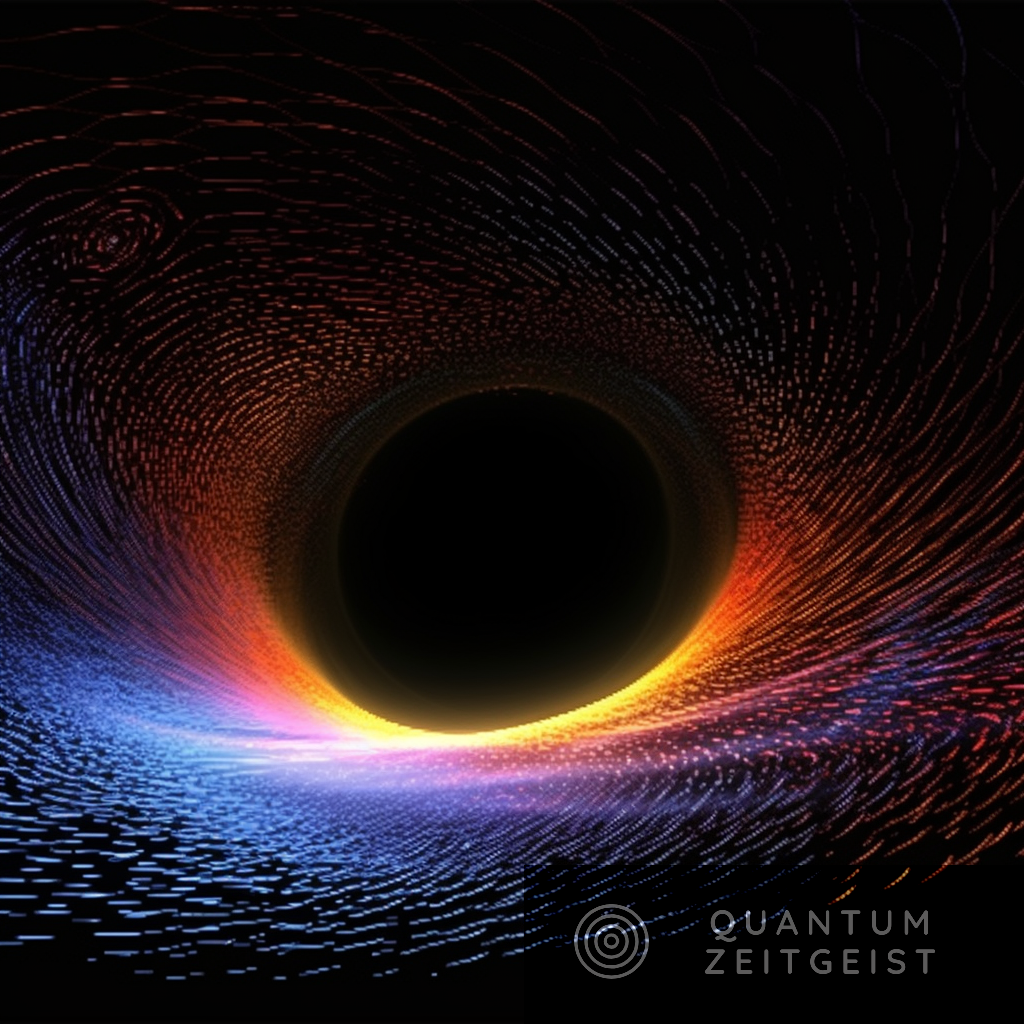Chinese scientists have used quantum computing to simulate the physics of black holes, testing a theory devised by physicist Stephen Hawking. The experiments on Hawking radiation mark a step towards creating quantum systems with properties similar to black holes. The researchers from the Chinese Academy of Sciences, Tianjin University, the Beijing Academy of Quantum Information Sciences, and the RIKEN Cluster for Pioneering Research in Japan published their findings in Nature Communications.
Researchers from the Chinese Academy of Sciences, Tianjin University, the Beijing Academy of Quantum Information Sciences, and the RIKEN Cluster for Pioneering Research in Japan developed a superconducting processor to observe analogue Hawking radiation. The experiment marks a step towards creating quantum systems with properties similar to black holes and could stimulate further interest in exploring black hole features using programmable superconducting processors.
The researchers claim that their experiments on Hawking radiation, a theory proposed by British theoretical physicist Stephen Hawking in 1974, have opened up a new path for simulating the quantum effects of black holes with superconducting quantum chips. This marks a step towards creating quantum systems with properties analogous to those of black holes.
“The results show that there is always a certain probability that the quasiparticle inside the analogue black hole will radiate through the event horizon, and its radiation probability satisfies the property of Hawking radiation,”
Institute of Theoretical Physics of the Chinese Academy of Sciences
Hawking radiation refers to the energy emitted from just outside a black hole’s event horizon or boundary. Through this radiation, black holes lose energy and will eventually evaporate. Observing the quantum effect of a real black hole in astrophysics is difficult, and testing them through experiments is challenging due to the weak nature of these effects.
Superconducting Processor Developed for Observing Analogue Hawking Radiation
To observe analogue Hawking radiation, the team developed a superconducting processor consisting of 10 qubits with interaction couplings controlled by nine tunable couplers. The results showed that there was always a certain probability that the quasiparticle inside the analogue black hole would radiate through the event horizon, and its radiation probability satisfied the property of Hawking radiation.
The behaviour of stimulated Hawking radiation was verified by measuring all the qubits outside the horizon. The team believes their results will evoke more interest in exploring the related features of black holes using the programmable superconducting processor with tunable couplers.
Collaborative Research Effort
The research was conducted by scientists from the Chinese Academy of Sciences, Tianjin University, the Beijing Academy of Quantum Information Sciences, and the RIKEN Cluster for Pioneering Research in Japan. Their findings were published in the peer-reviewed journal Nature Communications this month.
The researchers hope that their newly constructed analogue black hole will facilitate further investigations of other related problems of the black hole. As the quantum effects of black holes are difficult to observe and test directly, this research marks a significant step forward in understanding these mysterious phenomena.
“Our results would stimulate more interest to explore the related features of black holes using the programmable superconducting processor with tunable couplers,”
Research Team
Research Summary
Chinese scientists have simulated the physics of black holes using quantum computing, marking a step towards creating quantum systems with properties analogous to black holes. The experiments on Hawking radiation open up a new path for simulating the quantum effects of black holes with superconducting quantum chips.
- Chinese scientists have used quantum computing to simulate the physics of black holes.
- The research team tested a theory on Hawking radiation, devised by physicist Stephen Hawking in 1974.
- The experiment marks a step towards creating quantum systems with properties similar to black holes.
- The researchers are from the Chinese Academy of Sciences, Tianjin University, the Beijing Academy of Quantum Information Sciences, and the RIKEN Cluster for Pioneering Research in Japan.
- The study was published in the peer-reviewed journal Nature Communications.
- The team developed a superconducting processor of 10 qubits with interaction couplings controlled by nine tunable couplers.
- The results showed that the quasiparticle inside the analogue black hole will radiate through the event horizon, satisfying the property of Hawking radiation.

